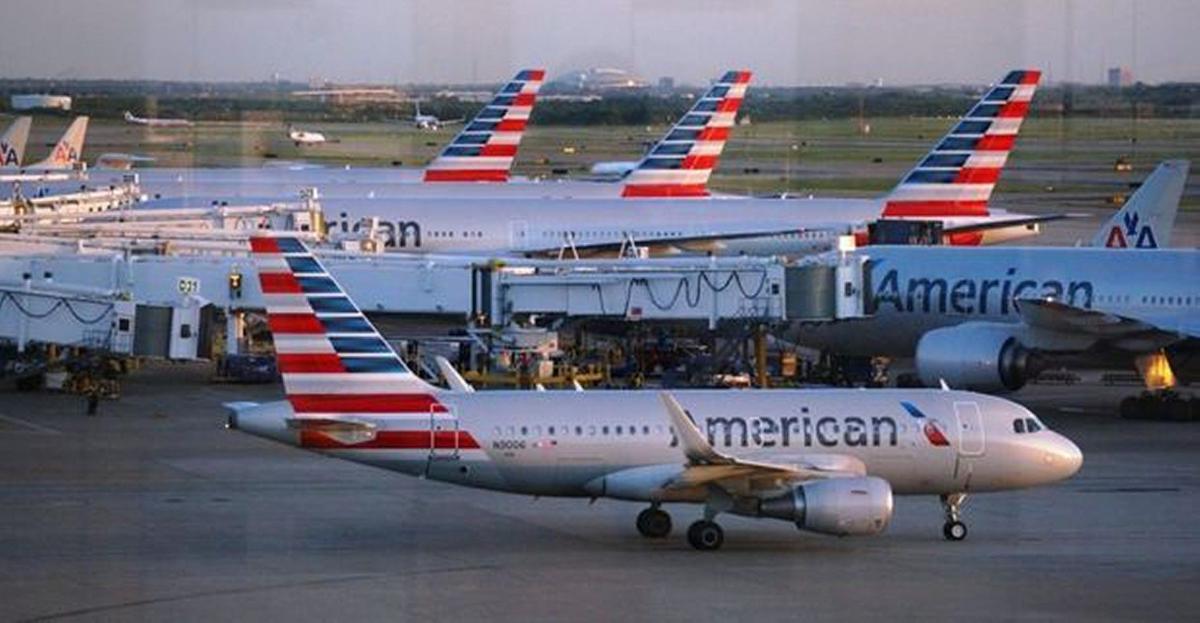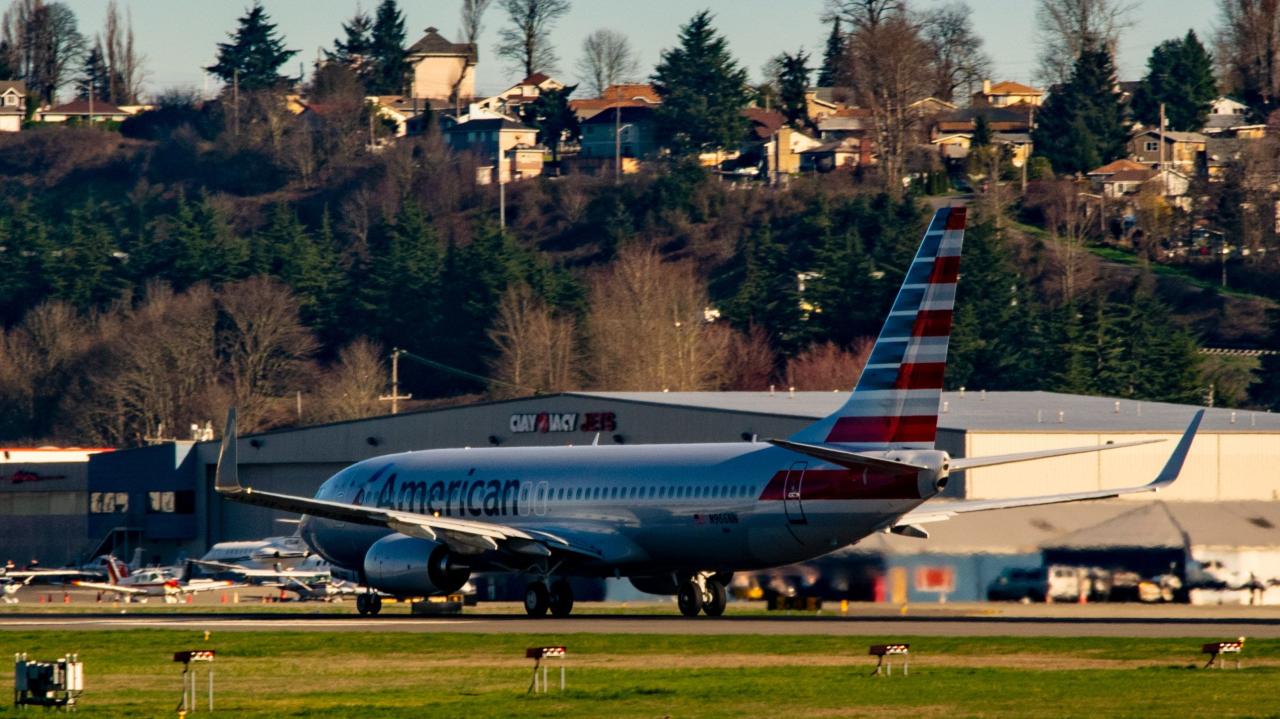American Airlines not flying to Dallas? This unexpected disruption has left many travelers scrambling to rearrange their plans. The recent changes to American Airlines’ flight routes, specifically the cancellations and suspensions of flights to Dallas, have created significant challenges for passengers. This detailed analysis explores the reasons behind these alterations, the impact on affected individuals, and the available alternative travel options, providing a comprehensive overview of this evolving situation and offering hope for smoother future journeys.
We delve into the specific dates of these route changes, examining official press releases and comparing current flight schedules to past ones. We’ll hear directly from passengers affected by these cancellations, learning about their experiences and the support—or lack thereof—received from American Airlines. We’ll also uncover the underlying factors contributing to these decisions, including operational difficulties, economic pressures, and potential airport infrastructure limitations.
Ultimately, we aim to provide a clear understanding of the situation and resources for navigating this complex travel disruption.
Impact on Passengers: American Airlines Not Flying To Dallas

The recent changes to American Airlines’ flight routes, impacting service to Dallas, have undeniably created challenges for many passengers. Understanding the effects on travelers and the support provided is crucial for ensuring future travel experiences are smoother and more reliable. This section aims to address the various impacts on passengers, offering insights into their experiences and the airline’s response.The alteration of flight routes to Dallas has led to significant disruptions for numerous travelers.
Some have experienced flight cancellations, resulting in missed connections, extended layovers, and considerable delays in reaching their final destinations. Others have faced changes to their itineraries, requiring them to adjust their travel plans, potentially impacting pre-arranged accommodations or other commitments. The inconvenience caused by these disruptions has been substantial, impacting both leisure and business travelers alike.
Passenger Experiences and Feedback
Feedback from affected passengers has revealed a range of experiences, from minor inconveniences to significant setbacks. Many passengers have shared stories of stressful airport experiences, including long wait times for rebooking assistance and difficulties communicating with airline representatives. While some have expressed frustration with the lack of clear communication regarding route changes, others have praised the efforts of American Airlines staff in mitigating the disruptions and providing assistance.
For example, one passenger recounted how a delayed flight led to a missed crucial business meeting, resulting in lost revenue. Another passenger described the anxiety of being stranded in an unfamiliar airport due to a cancelled flight. These experiences highlight the real-world impact of these route changes.
Compensation and Support Provided by American Airlines, American airlines not flying to dallas
American Airlines has implemented various measures to compensate and support affected passengers. This includes offering alternative flight arrangements, providing hotel accommodations for passengers stranded due to cancellations, and offering refunds or travel vouchers for cancelled or significantly altered flights. The specifics of compensation have varied depending on the individual circumstances and the extent of the disruption. The airline has also increased staffing at affected airports to provide more efficient assistance to passengers.
However, consistent and clear communication regarding the compensation process remains a key area for improvement, based on passenger feedback.
Common Passenger Concerns
The route changes have generated several common concerns among passengers. A clear understanding of these concerns is essential for improving future service and communication.
- Lack of timely notification regarding flight changes.
- Difficulty in rebooking flights on alternative routes.
- Inadequate compensation for significant travel disruptions.
- Limited availability of customer service support during disruptions.
- Uncertainty regarding future flight reliability on affected routes.
Underlying Reasons for Route Changes

American Airlines’ decisions to adjust flight routes, including those to Dallas, are complex and multifaceted, driven by a dynamic interplay of operational, economic, and infrastructural factors. These changes, while sometimes disruptive for passengers, often reflect a strategic realignment aimed at maximizing efficiency and profitability within a constantly evolving aviation landscape. Understanding these underlying reasons provides valuable insight into the industry’s adaptive nature.
Several key factors contribute to route adjustments. Operational challenges, such as pilot and crew shortages, rising fuel costs, and maintenance needs, significantly impact an airline’s ability to maintain a vast network of flights. Economic considerations, including passenger demand fluctuations and competitive pressures from other airlines, play a crucial role. Airport infrastructure limitations, such as runway capacity, gate availability, and air traffic control constraints, can also restrict the number of flights an airline can operate to a specific destination.
These factors are often interconnected, creating a complex web of influences that shape airline route planning decisions.
Factors Contributing to Route Changes
The decision to reduce or cancel flights to Dallas, for example, might stem from a combination of factors. Suppose passenger demand for flights to Dallas from a particular origin city has decreased significantly due to economic downturn in that region. Simultaneously, the airline might be experiencing increased operational costs due to rising fuel prices. This combination could make the route unprofitable, leading to its suspension.
Alternatively, limitations in Dallas’ airport infrastructure, such as a lack of available gates during peak hours, could constrain American Airlines’ ability to operate the desired number of flights, prompting a reduction in service.
Comparison with Other Cities
Similar instances of route changes have occurred in other cities across the country and globally. For example, during periods of economic uncertainty, airlines often reduce service to smaller or less profitable markets, prioritizing routes with higher passenger demand. The impact of airport infrastructure limitations is also evident in major hubs experiencing rapid growth, where airlines might be forced to reduce or reschedule flights due to congestion.
The airline industry’s response to such challenges often involves a careful evaluation of cost versus revenue, seeking to optimize resource allocation and ensure long-term financial stability. A reduction in flights to a specific city does not necessarily reflect a decline in the city’s overall importance, but rather a strategic adjustment within a larger operational framework.
Decision-Making Process Flowchart
The decision-making process behind flight cancellations is a multi-stage process involving various departments within the airline. It begins with data analysis of passenger demand, operational costs, and airport capacity. This data is then used to model the profitability of each route. If a route is deemed unprofitable or unsustainable, a proposal for route adjustment is developed, undergoing internal review and approval.
Finally, the decision is communicated to passengers and other stakeholders. This process is iterative and involves continuous monitoring and evaluation of performance.
American Airlines’ Response and Communication
American Airlines faced a significant challenge when it discontinued certain routes, particularly those to Dallas. Their response and communication strategy during this period directly impacted passenger trust and the airline’s overall reputation. A well-executed communication plan is crucial in mitigating negative fallout and maintaining a positive brand image during such disruptive events. Transparency and proactive engagement are key to navigating these challenging situations successfully.American Airlines utilized multiple channels to inform customers and the public about the route changes.
Press releases were issued to major news outlets, providing official statements about the reasons for the cancellations and outlining the airline’s plans to accommodate affected passengers. The airline also updated its official website, prominently displaying information about the changes and providing links to frequently asked questions. Email notifications were sent to passengers booked on affected flights, detailing their options, including rebooking on alternative flights or receiving refunds.
Furthermore, American Airlines engaged with passengers on social media platforms, responding to inquiries and addressing concerns promptly.
Effectiveness of Communication Strategies
The effectiveness of American Airlines’ communication strategies varied. While the proactive use of multiple channels ensured widespread dissemination of information, some passengers reported difficulties in accessing timely and accurate information. The clarity of the communication also varied; some messages were perceived as confusing or lacking sufficient detail, leading to increased passenger anxiety and frustration. The speed of response to individual inquiries on social media also varied depending on the volume of inquiries at any given time.
While many passengers praised the airline’s efforts to rebook them on alternative flights, others felt the process was cumbersome and lacked sufficient personal attention. The overall feedback suggests that while American Airlines made a significant effort to communicate the changes, there were areas where improvements could significantly enhance passenger experience.
Handling of Passenger Inquiries and Complaints
American Airlines established dedicated customer service teams to handle inquiries and complaints related to the cancellations. Passengers could contact the airline via phone, email, or social media. The airline offered various options to affected passengers, including rebooking on alternative flights, providing refunds, or offering travel vouchers for future use. While many passengers reported positive experiences with the customer service representatives, others noted long wait times and difficulty in reaching a representative.
The effectiveness of complaint resolution also varied, with some passengers feeling their concerns were adequately addressed, while others felt their complaints were not handled efficiently or effectively. The inconsistencies in customer service experiences highlight the need for a more standardized and efficient process for handling passenger inquiries and complaints.
Suggestions for Improving Communication
To enhance communication during future route changes or disruptions, American Airlines could consider the following improvements:
- Implement a centralized communication platform providing real-time updates and consistent messaging across all channels.
- Develop clear, concise, and easily understandable communication materials, utilizing multiple languages where necessary.
- Increase the capacity of customer service teams to handle a surge in inquiries, ensuring prompt and personalized responses.
- Proactively reach out to affected passengers well in advance of the flight cancellations, providing ample time for rebooking or alternative arrangements.
- Implement a robust feedback mechanism to gather passenger input and continuously improve communication strategies.
Navigating unexpected flight cancellations can be stressful, but understanding the reasons behind them and exploring alternative options can empower travelers. The American Airlines Dallas flight cancellations highlight the importance of flexible travel plans and the need for clear and proactive communication from airlines. While disruptions are inevitable, proactive planning, informed decision-making, and a focus on passenger well-being are key to mitigating the impact of such events.
By understanding the factors contributing to these changes, passengers can better prepare for future travel and advocate for their rights when faced with similar circumstances. Remember, even amidst challenges, there are always solutions, and your journey continues.
Top FAQs
What are my rights if my American Airlines flight to Dallas is cancelled?
Your rights depend on the reason for cancellation and your ticket type. Check American Airlines’ contract of carriage and consider contacting the Department of Transportation for guidance.
Can I get a refund if my flight is cancelled?
This depends on the reason for cancellation and your ticket’s terms. Contact American Airlines directly to inquire about a refund or rebooking options.
Are there any other airlines flying to Dallas from my city?
Yes, check online travel agencies or the websites of other airlines (e.g., Southwest, Delta, United) to find alternative flights.
What should I do if I’m stranded due to a cancelled flight?
Contact American Airlines immediately. They may offer alternative flights or hotel accommodations. Also, consider contacting your travel insurance provider.